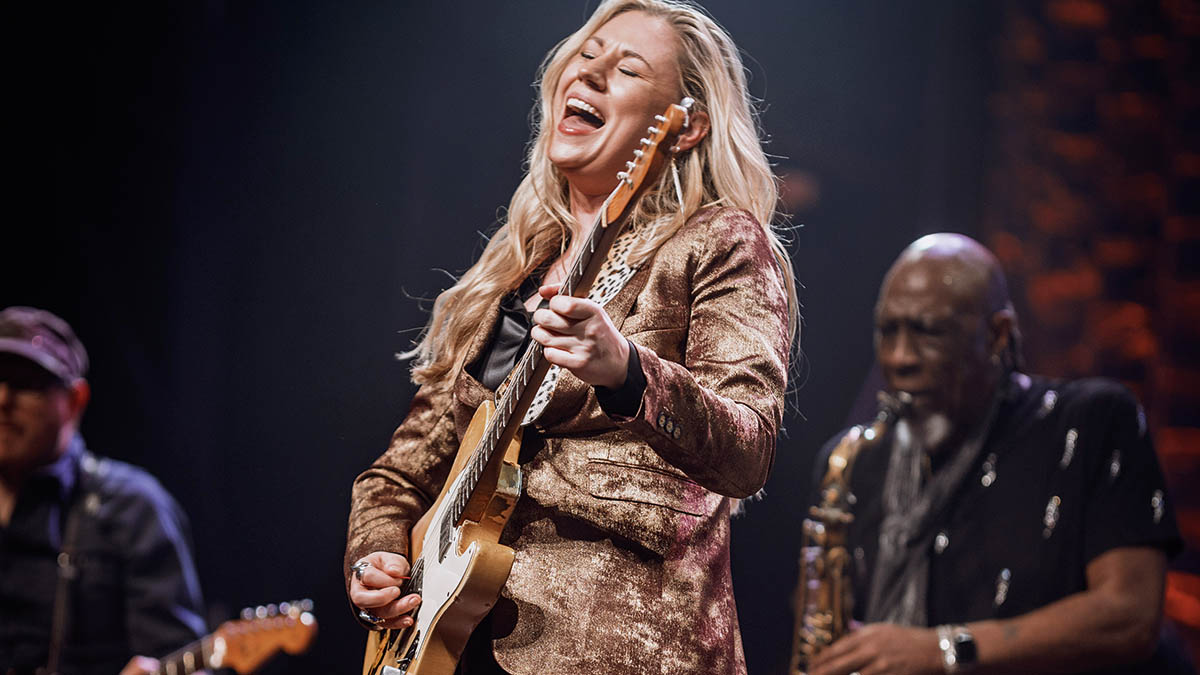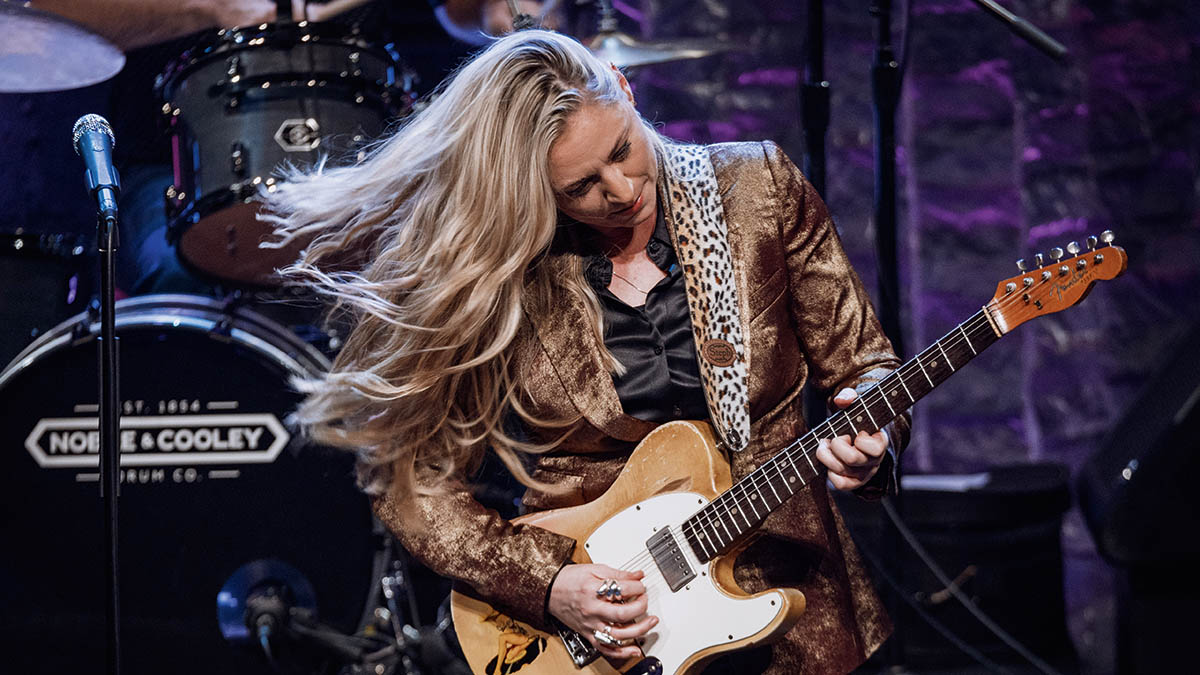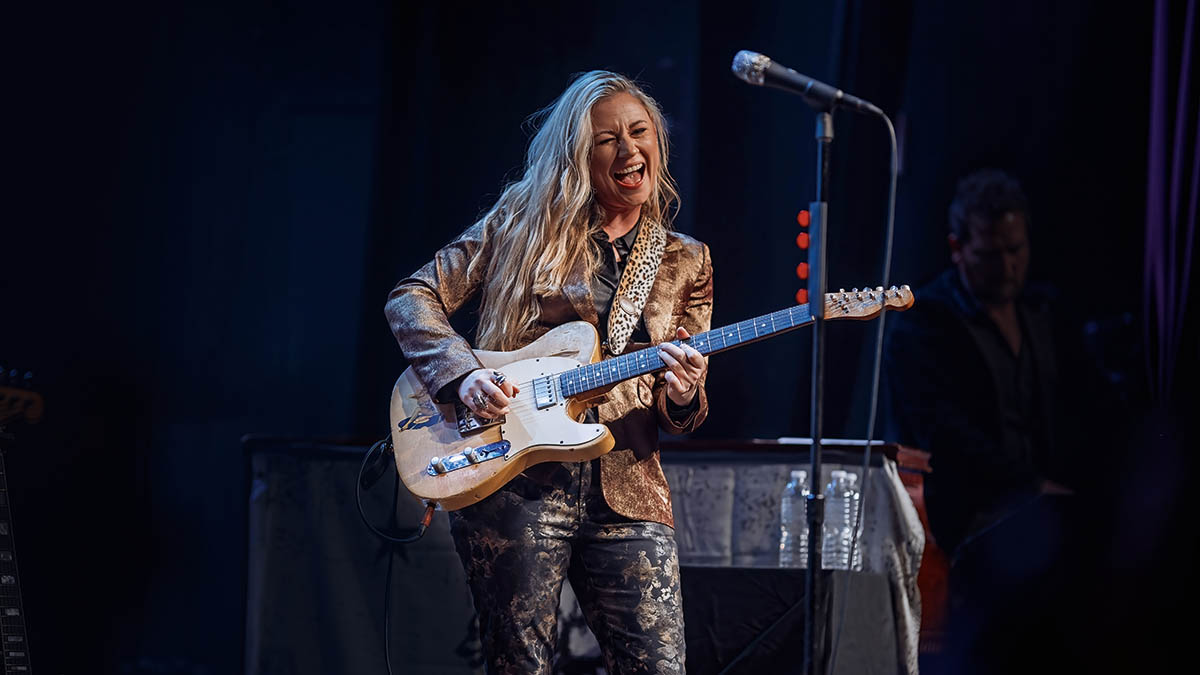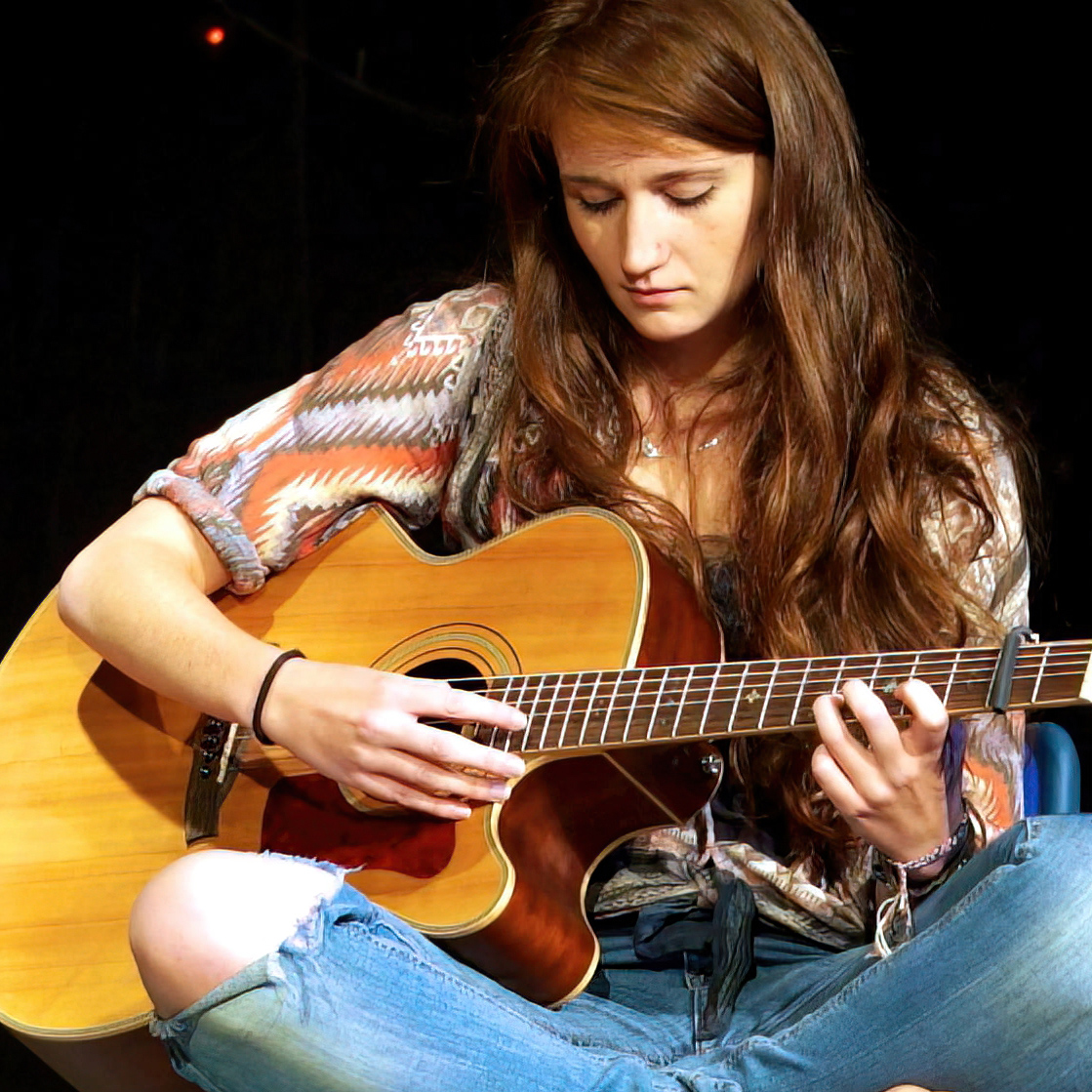Joanne Shaw Taylor: “I phoned Joe Bonamassa and was like, ‘You do know I’m not bringing s**t to this session?’ Who goes to Nerdville and takes their own gear?”
The UK blues sensation on making a new album of blues covers with JoBo and Josh Smith – despite not considering herself a blues artist

Since she was a teenager playing the UK pub circuit, Joanne Shaw Taylor has been hailed as one of the finest contemporary blues guitarists to emerge from the UK scene in recent memory. But until September last year, she’d never cut an album that was pure blues from top to tail.
Cue The Blues Album, a record produced by blues megastar Joe Bonamassa, and stuffed full of deep cuts from the likes of Little Milton, Albert King and Magic Sam. It was an album that Joanne had always wanted to make, and it was met with widespread acclaim.
Now, two years after her last tour was curtailed by the pandemic, Joanne returns to the stage in April with a run of six blues-loaded concerts – armed with her number one guitar, “Junior”, a 1966 Fender Esquire.
What led you to make The Blues Album?
“I’d never really considered myself a blues artist. I’m hugely blues-influenced, and it wasn’t intentional not to be a blues artist. All my guitar influences were predominantly blues, but when it came to learning to sing, I couldn’t sound like Albert Collins or Howlin’ Wolf.
“I tried, but it just wasn’t happening! So when it came to finding female singers I could relate to, it tended to be Tina Turner and Aretha Franklin – more soul stuff. Over the years, I’ve become this artist that’s a blend of blues, soul and pop. The other thing is, I don’t feel like I’ve ever been able to write blues songs.
“Usually traditional blues songs are I-IV-V and written around a really good hook. You know, Smokestack Lightning doesn’t really have many lyrics to it other than 'Aaahoo smokestack lightning!' And I’m just not that kind of writer.”
Get The Pick Newsletter
All the latest guitar news, interviews, lessons, reviews, deals and more, direct to your inbox!
So you decided on an album of covers.
“Yes, I’d always wanted to do a proper, contemporary-but-traditional blues album, and I knew, to do that, I’d probably have to do all covers. After Covid, I was really excited to get back to music and just enjoy doing it.
“I happened to be talking to my best friend, Joe Bonamassa, about it and he was very encouraging and started sending me song ideas to the point where I said, ‘Look, do you want to produce this, because you’re already kind of producing it?’”
In blues, there’s a lot of well-travelled material. How did you make your song choices?
“‘Well-travelled’ is a polite way of saying it – there are songs that have been done to death! From the get-go, me and Joe said: ‘We’re not doing Sweet Home Chicago or Mustang Sally or anything off the Blues Brothers soundtrack.’
“For me, it’s all about the lyrics. Particularly as a female, I’ve got to sing something that represents me, and is something I can feel, like Little Richard’s I Don’t Know What You’ve Got.
“I will admit that there were also some songs I’d played when I was 14 or 15, doing the pub circuit around the West Midlands, that I wanted to go back to now that I’m not singing like a 14-year-old Solihull school girl!”
Guitar-wise, which tracks or solos are you most proud of?
“All of them! The fun thing about this was that the solos were easy. We barely did many takes. The biggest challenge, which sounds stupid, was that I was quite scared of playing in front of Joe.
“Two of the best guitar players in the world produced this album – Bonamassa and Josh Smith – who I hugely admire. But also, I get quite nervous playing in front of people I know. Me and Joe are very good friends, so it was the worst of both worlds!”
The biggest challenge, which sounds stupid, was that I was quite scared of playing in front of Joe
Joe is well known for his vintage gear collection – did you use much of it?
“I actually kept it simple. I was planning to use all of his gear. At the time of recording, the vaccine wasn’t available, so I didn’t want to risk getting something on a plane and passing it on to anybody else in the session.
“So I drove from where I live in Detroit down to Nashville, and loaded my car with a suitcase and one guitar. I phoned him and was like, ‘You do know I’m not bringing shit to this session?’ Who goes to Nerdville and takes their own gear? It just felt stupid. When I got down, we used a few of his amps, but I really struggled to play his guitars. I didn’t realise how different our setups are.
“We both have quite a high action – actually, I have a higher action than Joe – but I didn’t realise he uses gauge-12 strings. I use 10s or 11s, and he tunes to standard while I tune down a half-step, so I realised pretty swiftly that these were big boy guitars and none were going to suit me!”

Tell us about the guitar you took.
“His name is Junior. I think it’s fair that I get male guitars since all the boys name theirs after females! I found him on Denmark Street when I was 15. I’d been playing for a couple of years, gigging, and was working in a guitar shop on weekends. My nan and dad said they’d match whatever I made as a reward for working hard, and I managed to get together £1,200.
“With Esquires, there’s always a gap underneath the scratchplate where you could put a neck pickup, and I think the previous owner had attacked it with a knife and gouged it out doing a home job to put a humbucker in. So I got it slightly cheaper. I just love him. It’s a bright guitar which I love, and the rosewood neck really suits me – it’s a comfort thing at this point.”
What’s it been like being off the road for so long, and are you excited to be heading back?
“To be honest, I was utterly burned out after 13 years, nonstop on the road. I was in really bad shape and really struggling. You can’t run at that speed and you can’t live like that. What’s been great is, since I’ve returned, you see posters in every venue saying, ‘This is not a normal way of earning a living – here’s a phone number if you’re struggling on the road.’
“It’s really cool that we’re starting to talk more about mental health. Fortunately for me, I have a brilliant tour manager, and Sony – who I was with at the time - were fantastic. They said if I could get to the end of the year they would give me six months off. Then Covid hit and I got two years off, so it was a case of being careful what you wish for! But we’re out now and it’s fantastic – I’ve been absolutely loving it. The main thing I’ve taken from the time off is how lucky I am to do this.”

When it comes to playing live, what type of tone do you like and how do you go about getting it?
“The dream is to do what we did on the album: two amps, turned up. At the moment, I’m running two Fender Bassmans. I’ve got two vintage ’63 Piggybacks. The idea is to crank them, and that’s your tone. Sometimes I’ll run a Tube Screamer but without the distortion as a boost.”
So there’s no chain of pedals to worry about?
“No, we didn’t use any on the album, and live, I’m not a fan of pedals. I keep talking to my friend Carmen Vandenberg, who’s in a band called BONES. They did an album with Jeff Beck and we’ve talked about doing a project together. For that I’d bring everything and experiment with as many different sounds as possible.
“But I’m very much going for a traditional thing here – so it’s a Holy Grail Reverb and a tuner and I’m happy! My job is to sing, play guitar and make the audience feel something, so if you’re constantly looking down to see which pedal needs to be turned on for a solo and then off for the verse, it brings you out of the show a little bit.”
- The Blues Album is out now via KTBA Records.
Since graduating university with a degree in English, Ellie has spent the last decade working in a variety of media, marketing and live events roles. As well as being a regular contributor to GuitarWorld.com, she currently heads up the marketing team of a mid-scale venue in the south-west of England. She started dabbling with guitars around the age of seven and has been borderline obsessed ever since. She has a particular fascination with alternate tunings, is forever hunting for the perfect slide for the smaller-handed guitarist, and derives a sadistic pleasure from bothering her drummer mates with a preference for wonky time signatures.
“There’d been three-minute solos, which were just ridiculous – and knackering to play live!” Stoner-doom merchants Sergeant Thunderhoof may have toned down the self-indulgence, but their 10-minute epics still get medieval on your eardrums
“There’s a slight latency in there. You can’t be super-accurate”: Yngwie Malmsteen names the guitar picks that don’t work for shred


![A black-and-white action shot of Sergeant Thunderhoof perform live: [from left] Mark Sayer, Dan Flitcroft, Jim Camp and Josh Gallop](https://cdn.mos.cms.futurecdn.net/am3UhJbsxAE239XRRZ8zC8.jpg)







